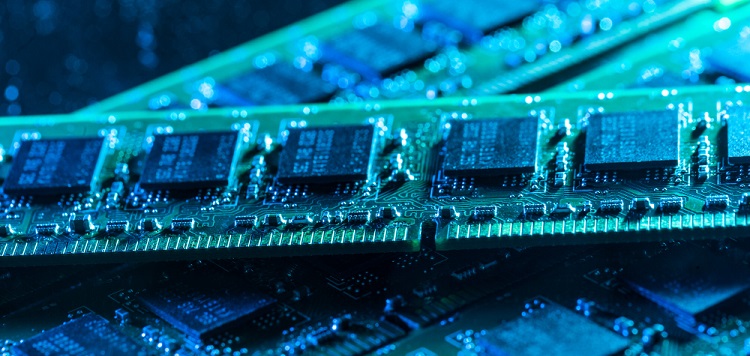NVMe (Non-Volatile Memory Express): The Future of Memory Processing.
In today’s digital age, memory processing is becoming more demanding as we create and store more data. Non-Volatile Memory Express (NVMe) has emerged as the solution to improve memory processing through faster speeds and higher read/write rates. NVMe is designed to cater to exponentially more efficient memory processing, making it the future of memory processing.
Features and Benefits of NVMe
NVMe considerably outpaces legacy Solid State Drives (SSDs) and Hard Disk Drives (HDDs) that use the Serial Attached SCSI (SAS) and Serial Advanced Technology Attachment (SATA) interfaces. NVMe-based drives can reach reading speeds of 7 GB/s and write at rates of 5-6 GB/s, thereby significantly improving overall system performance.
The fastest NVMe drives feature the latest 4-bit QLC technology, which offers maximum capacity, flash storage support, faster read and write times, and an extended lifespan. These features ensure faster data transfer, shorter boot times, and reduced bottlenecks while performing data-intensive applications.
How NVMe improves on its predecessors
The NVMe interface improves on its predecessors because it is designed to accommodate faster speeds, enhance server performance, and map commands more efficiently by using a message-based protocol, unlike earlier interfaces that use conventional register-based ATA/SAS interfaces. This approach offers a more streamlined and efficient memory process.
The NVMe interface is also a prevalent feature in the latest solid-state storage devices because it offers maximum I/O speeds and low latency.
NVMe’s Remote Direct Memory Access (RDMA)
The NVMe interface uses Remote Direct Memory Access (RDMA) when using PCIe-based networking to ensure maximum bandwidth and low latency. This is achieved through the use of NVMe over Fabric (NVMe-oF) technology, which makes shared memory available to clients over the network. With this, CPU resources are freed, boosting the overall performance of the system.
The NVMe buffer
The NVMe buffer, also known as the NVMe queue, is a feature that enables the controller memory to formulate commands. This process ensures that the host does not rely on fetching commands through the PCIe bus, which is relatively slower due to higher latency.
The buffer queue makes a significant difference in overall performance by effectively reducing latency when it comes to I/O operations like reading and writing. The buffer provides space to queue I/O requests before dispatching them to the controller accelerators.
NVMe for Windows clusters
NVMe supports multi-host reservations in Windows Clusters that coordinate host access by managing shared namespaces. This optimizes the performance of NVMe SSDs deployed in a clustered environment. The namespace interface handles all namespace-related commands and allows multiple hosts to reserve collections simultaneously.
Cost and Suitability of NVMe
NVMe-based storage is more expensive than other storage devices, which can be a significant factor for companies looking to use it for their operations. Additionally, many popular NVMe drives are not suitable for large data centers due to their limited endurance, therefore they would be improper for prolonged and extensive usage.
NVMe over Fabrics
NVMe over Fabrics is a relatively new protocol that enables NVMe devices to be accessible over a network. This protocol is an essential feature when it comes to deploying shared NVMe drives for network storage. With NVMe over Fabrics, the drives can be connected to more than one system in a switching fabric configuration, allowing each system to have fast access to the drives.
NVMe is the future of memory processing, offering superior speed and read/write rates, reduced latency, and engineered for server, client, and cloud computing markets. NVMe drives feature the latest 4-bit QLC technology, which offers maximum capacity, flash storage support, faster read and write times, and an extended lifespan.
The NVMe interface uses Remote Direct Memory Access (RDMA) when using PCIe-based networking, ensuring maximum bandwidth, low latency, and improved overall system performance. While NVMe-based storage is more expensive than other storage devices, it offers superior performance and is a practical solution for companies and businesses looking to improve their overall memory processing capabilities.

